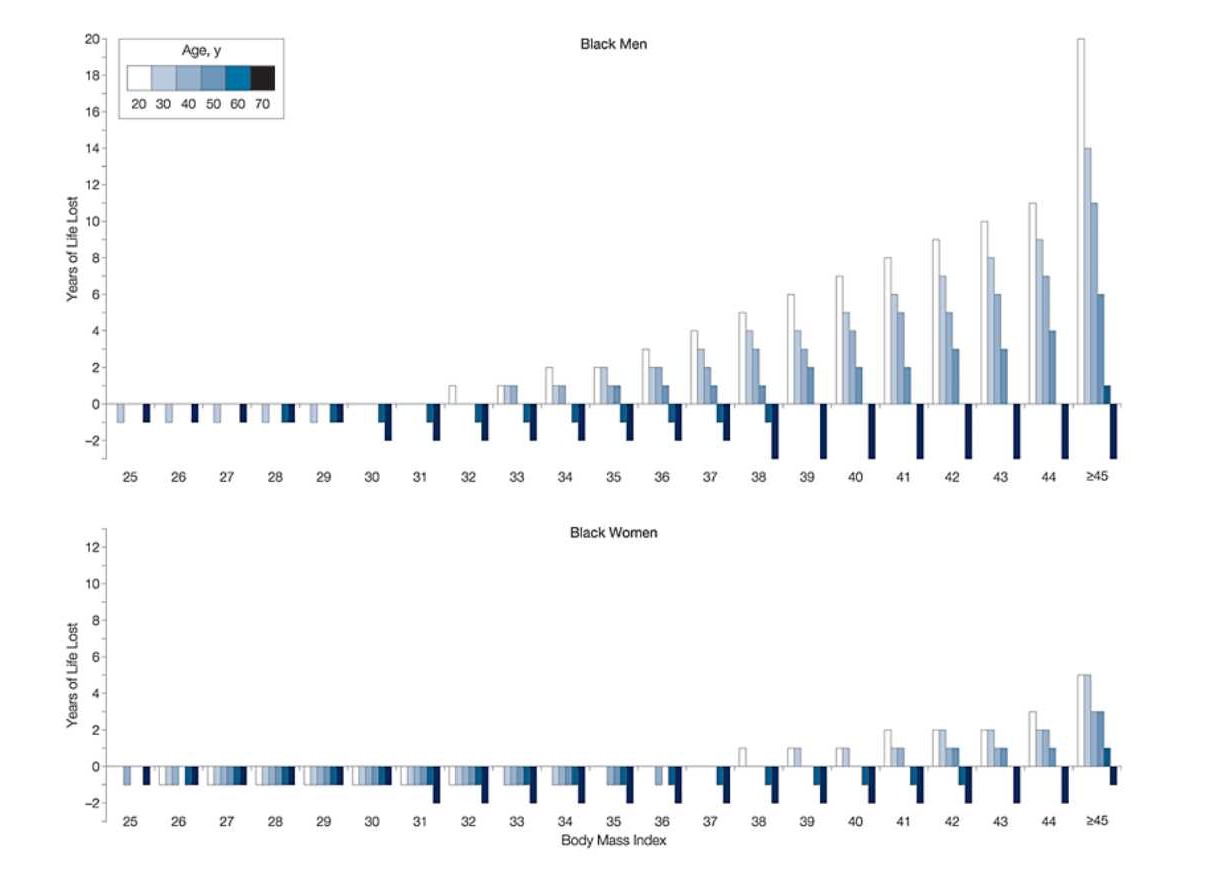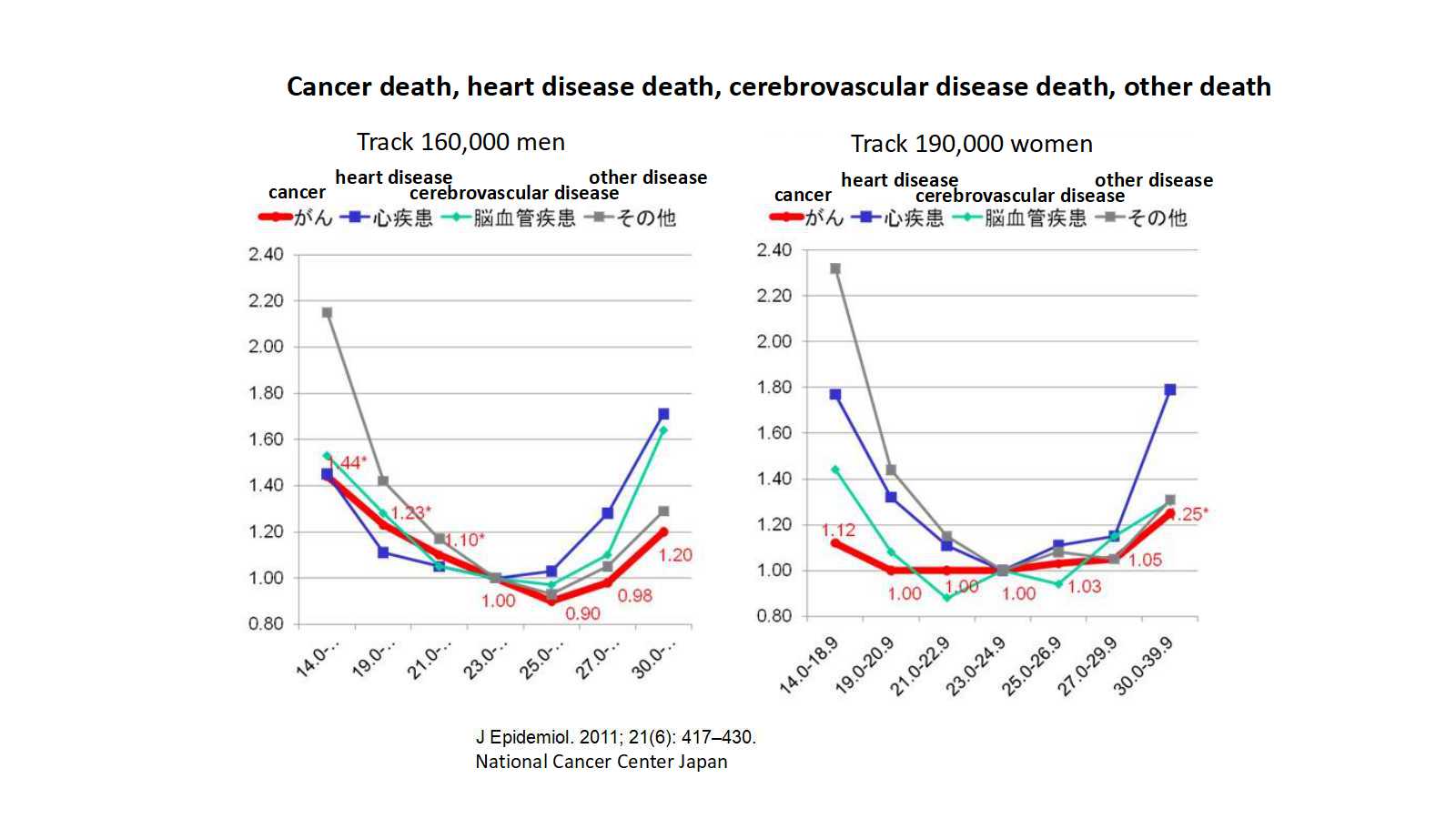Relationship between BMI and mortality
Obesity is a risk factor for diabetes, cardiovascular disease and some cancers. This time, the Cancer Control Institute of the National Cancer Center Japan performed a quantitative evaluation by pool analysis combining data of more than 350,000 Japanese people.
BMI = weight kg / (height m x height m)
They estimated the impact on mortality risk by cause of death and gender, and published the research results in the journal. By cause of death in men, the risk of death from “cancer” and “other causes” of death forms an “inverted J-type” curve, with a higher risk at low BMI, but the risk of death from “cardiac disease” and “cerebrovascular disease” increases at both high and low BMI, with a more pronounced increase at high BMI. Regarding the risk of death from cancer in women, unlike men, there was no “inverted J type”, and a statistically significant increase in risk was observed only in the BMI 30-40 category (obesity). A curve similar to that for men was seen for the mortality risk of ‘cardiac disease’ and ‘cerebrovascular disease’. The fact that the increase in mortality due to low BMI is conspicuous is consistent with the results of international joint research on Asian data, but the results of studies in Europe and the United States show that the increase in mortality due to high BMI is more pronounced. Further research is needed to determine what causes these differences. Even so, BMI has a strong impression that it is bad if you are overweight, but even if you are too thin, your life will be shortened.


Also, according to Dr. Kevin Fontaine’s research in the United States (JAMA. 2003;289(2):187-193. doi:10.1001/jama.289.2.187), in the case of white men with a BMI of 38 or higher, in their twenties, Life expectancy is shortened by 5 to 12 years, but it is shortened by 1 to 2 years in people in their 70s. For Caucasian women, a BMI of 41 or higher shortens life expectancy by 5 to 7 years, but there was little difference by age group. In the case of black men, life expectancy is shortened by 5 to 20 years in the twenties for men with a BMI of 38 or higher, but it is shortened by 1 to 5 years in the 70s, and the effect of obesity is greater than in white men. For black women in their 20s with a BMI of 45 or higher, life expectancy is shortened by 5 years, but there was no loss of life for those in their 70s.
